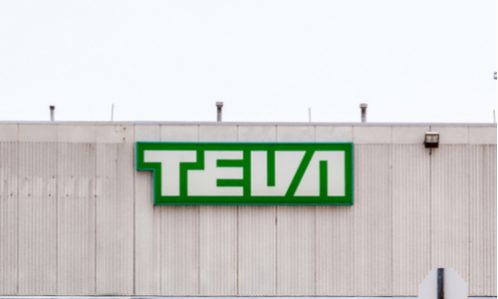
Teva Pharmaceuticals, the world’s largest producer of generic drugs, received a substantial blow on Thursday when the European Union fined the company €462.6 million ($503 million) for antitrust violations. According to Reuters, EU regulators determined that Teva used its dominant market position to stifle competition for its best-selling multiple sclerosis medication, Copaxone, by unlawfully delaying the entry of alternative treatments.
The European Commission stated that Teva’s actions included artificially extending patent protections on Copaxone and spreading misleading information about a competing product. This decision corroborated an earlier report by Reuters in September, which anticipated the European Commission’s findings. The company, however, has signaled its intent to challenge the ruling. Teva expressed disappointment and argued that the Commission’s legal theories lack solid evidence and a sound legal foundation, asserting its intention to appeal the decision.
Margrethe Vestager, the EU’s Competition Commissioner, underscored the broader implications of the decision, saying it demonstrates the EU’s commitment to ensuring fair competition within the pharmaceutical sector. Vestager stated that such enforcement helps “keep drugs affordable, preserve choice of treatment, and foster innovation, benefitting patients across the EU,” per Reuters.
Read more: Teva Faces EU Antitrust Fine Over Copaxone Practices
The Commission’s investigation found that Teva’s actions impacted several European markets, including Belgium, Germany, Italy, and Spain. According to their findings, Teva allegedly manipulated patent procedures and spread misinformation targeting healthcare professionals and authorities responsible for drug pricing and reimbursement. This misinformation campaign, the Commission stated, aimed to sow doubts about the safety and efficacy of a rival drug, thus delaying its entry into the market and extending Copaxone’s market exclusivity.
The roots of this antitrust case stretch back to 2019 when European authorities initiated surprise inspections at Teva offices, eventually opening a formal investigation in 2021. Per Reuters, this decision aligns with a recent trend in the EU’s stringent regulation of the pharmaceutical industry. In a related antitrust case in July, the European Commission closed an investigation into CSL-owned Vifor Pharma, which committed to refraining from disparaging a competitor’s iron deficiency treatment, avoiding a potentially severe penalty.
Teva, in response to the EU’s ruling, reiterated its disagreement with the decision’s foundation, arguing that it has cooperated fully with the investigation since 2019. The company maintained that its stance is well-supported by financial resources for a robust legal defense as it prepares for the appeal process.
Source: Reuters
Featured News
Judge Appoints Law Firms to Lead Consumer Antitrust Litigation Against Apple
Dec 22, 2024 by
CPI
Epic Health Systems Seeks Dismissal of Antitrust Suit Filed by Particle Health
Dec 22, 2024 by
CPI
Qualcomm Secures Partial Victory in Licensing Dispute with Arm, Jury Splits on Key Issues
Dec 22, 2024 by
CPI
Google Proposes Revised Revenue-Sharing Limits Amid Antitrust Battle
Dec 22, 2024 by
CPI
Japan’s Antitrust Authority Expected to Sanction Google Over Monopoly Practices
Dec 22, 2024 by
CPI
Antitrust Mix by CPI
Antitrust Chronicle® – CRESSE Insights
Dec 19, 2024 by
CPI
Effective Interoperability in Mobile Ecosystems: EU Competition Law Versus Regulation
Dec 19, 2024 by
Giuseppe Colangelo
The Use of Empirical Evidence in Antitrust: Trends, Challenges, and a Path Forward
Dec 19, 2024 by
Eliana Garces
Some Empirical Evidence on the Role of Presumptions and Evidentiary Standards on Antitrust (Under)Enforcement: Is the EC’s New Communication on Art.102 in the Right Direction?
Dec 19, 2024 by
Yannis Katsoulacos
The EC’s Draft Guidelines on the Application of Article 102 TFEU: An Economic Perspective
Dec 19, 2024 by
Benoit Durand